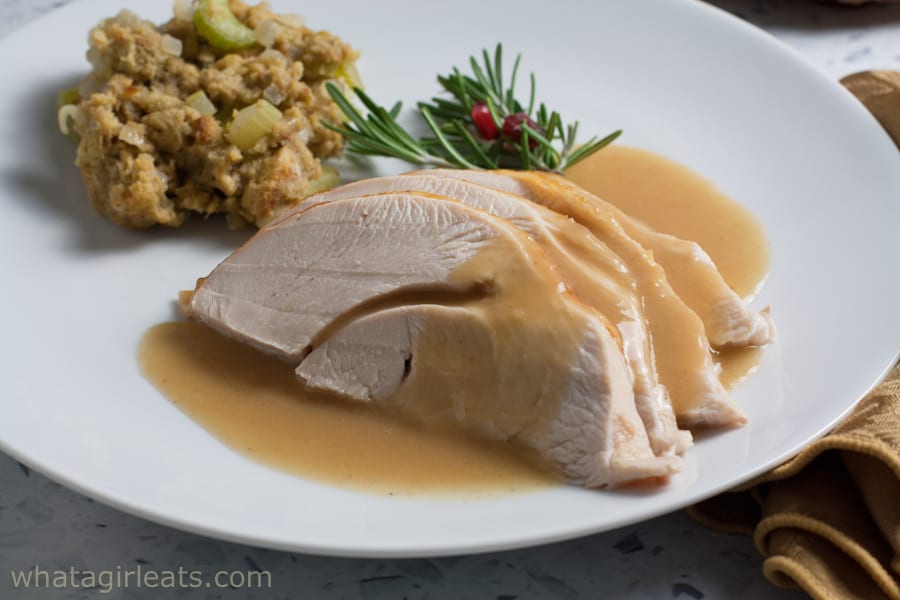To make any day feel like a holiday, slow roast turkey is a great choice. Whether you’re roasting turkey for Thanksgiving or just on a regular Sunday, these tips will help you get ready, set the right temperature, cook the turkey, and decide what to do with the leftovers.
Roasting a whole turkey can seem daunting, but with the right technique, it’s easy to make a moist, flavorful centerpiece for your holiday table As an avid home cook and food blogger, I’ve experimented with all kinds of turkey roasting methods over the years, and slow roasting consistently produces the best results. In this comprehensive guide, I’ll share my tips for selecting, preparing, and slow roasting the perfect turkey
Selecting and Preparing the Turkey
Choose the right size bird Plan on about 1 pound of turkey per person, which includes the bones For a crowd, two small turkeys may cook more evenly than one large one.
Thaw safely. Allow 24 hours of thawing for every 4-5 pounds. Thaw in the fridge, not at room temperature.
Loosen the skin. Slide your fingers under the skin over the breast and thighs to separate it from the meat.
Season generously. Sprinkle kosher salt and black pepper under the skin, in the cavity, and all over the outside.
Tie the legs. Trussing keeps the legs tucked in for more even cooking.
How to Slow Roast the Turkey
Slow roasting develops maximum juiciness and flavor. With this method, the turkey roasts at a low 250°F for most of the time, then finishes at a higher temp.
Check the temp. The thickest part of the breast should reach 165°F. The thighs should hit at least 170°F.
Let rest before carving. Allow the turkey to rest for 15-30 minutes after roasting so the juices can redistribute.
Roasting Tips and Troubleshooting
Follow these tips to troubleshoot any turkey roasting issues:
-
An oven thermometer is crucial for accuracy since many ovens run hot or cold.
-
Basting helps the skin get perfectly crispy. Skip basting if you want to minimize handling.
-
If the skin gets too brown, tent foil over it and turn down the oven slightly.
-
Cook time can vary based on oven temp, turkey size, and whether it’s stuffed.
-
Brining adds moisture but only minimally impacts total roasting time.
-
Stuffing the cavity does lengthen the cooking time significantly.
Make Amazing Leftovers
A slow roasted turkey provides leftovers galore. Get creative with these delicious options:
-
Open-faced hot turkey sandwiches with gravy and stuffing
-
Cheesy turkey enchiladas or pot pies
-
Turkey noodle soup or turkey tetrazzini
-
Turkey salad sandwiches with cranberry sauce and nuts
-
Turkey hash with eggs for breakfast
/GettyImages-93172894-59f0bbc80d327a001094e882.jpg)
Is it stuffing or dressing?
When I was growing up we always stuffed our turkey. The juices from the bird mingled with the stuffing and made it extra moist.
It scared me to think about putting cooked stuffing inside a raw bird after cooking school. It’s been decades since I last roasted a turkey with stuffing. It also adds time to the roasting process. An unstuffed turkey cooks faster and there’s no danger of cross-contamination.
Why you should make this slow roasted turkey recipe
When was the last time you slow-roasted a turkey? I don’t understand why we only make turkey a few times a year. It’s such an easy dinner, the leftovers can be turned into so many tasty dishes, and the meat isn’t too expensive.
We’re all busy, I get it. That’s why I have lots of recipes in my back pocket that take under 30 minutes. Sometimes I just don’t have the time or energy to spend more than an hour preparing a meal. Making a slow roast turkey does take a bit of prep, so it’s definitely not the meal to choose when you’re in a hurry!
But a slow-cooked turkey is the best way to take it easy, think, spend time with family, and be thankful for what we have on a holiday like Thanksgiving or Christmas, or even just on a lazy Sunday.

THE BEST SLOW ROASTED TURKEY| recipe
FAQ
How long does it take to cook a turkey at 250 degrees?
Is it safe to slow cook turkey at 250 degrees?
Can you cook a turkey low and slow?
How long to cook a turkey at 180 degrees?
